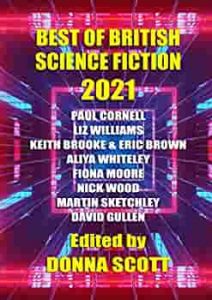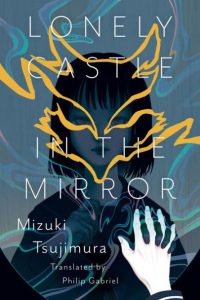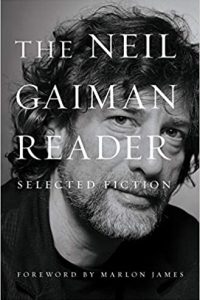Alexandra Pierce Reviews Best of British Science Fiction 2021 by Donna Scott, ed.
 Best of British Science Fiction 2021, Donna Scott, ed. (NewCon Press 978-1-91495-324-8, £26.99, 368pp, hc) August 2022. Cover by Ian Whates.
Best of British Science Fiction 2021, Donna Scott, ed. (NewCon Press 978-1-91495-324-8, £26.99, 368pp, hc) August 2022. Cover by Ian Whates.
Donna Scott has edited the Best of British Science Fiction for NewCon Press since 2016. For 2021 she has brought together 23 stories that she calls a “snapshot” of British science fiction, some of which reflect the issues of 2021 on a global scale, in terms of the pandemic, as well as British-specific concerns.
As with all anthologies, I didn’t love every story, and I’m not across all of the short fiction published by British authors in 2021 so I can’t speak to whether this is “the best.” It does, though, cover a wide variety of stories; some of the pieces included are short, and more like vignettes than narratives (Phillip Irving, Teika Marija Smits), which tends not to be my cup of tea; others are longer and have intense worldbuilding built in (Gary Couzens, Keith Brooke and Eric Brown). The stories also hit a variety of science fiction tropes: for example, some I would classify as “weird” (those from Paul Cornell and A.N. Myers, for example); a few focus on that beloved question, what makes us human (David Gullen, Tim Major, Aliya Whiteley). Technology is a significant part of many of the stories, especially in the form of robots (most notably Liz Williams, Martin Sketchley, Ryan Vance, Peter Sutton, Fiona Moore, Russell Hemmell, Emma Johanna Puranen). Interestingly, there are not many stories set off Earth (Michael Crouch, Rus sell Hemmell, David Cleden; only the Cleden is set on a spaceship).
My four favourite stories are all very different, and give a sense of the range of the anthology. Keith Brooke and Eric Brown cowrote “Me Two”, where the “I” of the story is both Danny-in-London and Cristina-in-Barcelona. The narrator alternates days in the two bodies; the other persona doesn’t cease to exist, on the off-days, but exactly what’s going on is never made clear. Rather than a story about technology or a quest for explanation, Brooke and Brown have written an autobiography that is at heart about identity, and reconciling difference, and it’s a delight. Very different in all ways is Emma Levin’s “A History of Food Additives in 22nd Century Britain”, a timeline that tells a story, beginning in 2101 when British food starts being enriched with minerals because soil quality is declining. In a rather pointed comment, it becomes legal to include “emotional additives” to food because of “pressure from American food corporations” in 2104… and the century unfolds from there, with the perhaps-predictable consequences for both humans and the ecosystem of such chemical additions. It’s a very clever story, making use of modern concerns about GMOs and microplastics. In a completely different way again, “The End of All Our Exploring” (Gary Couzens) is also very clever. At heart, it’s the story of a girl growing up in post-WWII Britain, with the advent of television (black and white, then color), the first airing of Doctor Who, and Jimi Hendrix all significant milestones. Barbara Ashton experiences all of these things, and her experience is heightened by her friendship with Adam, an odd man who seems to know more than he should about the future. The focus of the story remains firmly on Barbara, rather than on Adam, and this makes the story an intriguing one, as his origin and purpose remain opaque to both Barbara and reader. Finally, and again unlike the other stories, is Emma Johanna Puranen’s “A Spark in the Flask”. A story devoid of humans, and indeed life, it’s fundamentally about the origins of that very thing. What’s the best place to attempt to recreate the necessary conditions for life, and who could be trusted to do so without interfering? Puranen suggests it’s the moon, and that only robots could be used, to avoid any possible contamination. And so we have a story with a robotic caretaker rolling around a moonbase, observing rooms filled with various elements and compounds, being zapped by artificial lightning strikes, to simulate the proposed origins of life on Earth. It’s an enchanting little story, and I enjoyed it greatly.
Alexandra Pierce reads, writes, podcasts, cooks and knits; she’s Australian and a feminist. She was a host of the Hugo Award winning podcast Galactic Suburbia for a decade; her new podcast is all about indie bookshops and is called Paper Defiance. Alex has edited two award-winning non-fiction anthologies, Letters to Tiptree and Luminscent Threads: Connections to Octavia E Butler. She reviews a wide range of books at www.randomalex.net.
This review and more like it in the January 2023 issue of Locus.
 While you are here, please take a moment to support Locus with a one-time or recurring donation. We rely on reader donations to keep the magazine and site going, and would like to keep the site paywall free, but WE NEED YOUR FINANCIAL SUPPORT to continue quality coverage of the science fiction and fantasy field.
While you are here, please take a moment to support Locus with a one-time or recurring donation. We rely on reader donations to keep the magazine and site going, and would like to keep the site paywall free, but WE NEED YOUR FINANCIAL SUPPORT to continue quality coverage of the science fiction and fantasy field.
©Locus Magazine. Copyrighted material may not be republished without permission of LSFF.







